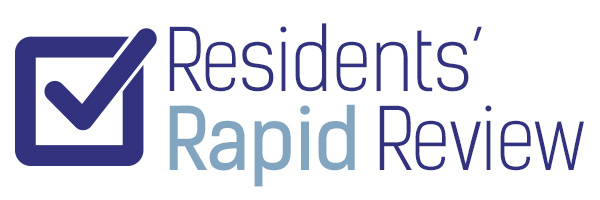
Type 2 diabetes mellitus: Test your skills with these 3 patients
Author and Disclosure Information [Show]
Gary S. Ferenchick, MD, MS, FACP, is a Professor of Internal Medicine at Michigan State University, in East Lansing. Dr. Ferenchick is also a faculty member of the National Family Medicine Board Review course, a podcast commentator with Primary Care Medical Abstracts, and creator of www.justintimemedicine.com.
Question 1 of 5
This quiz is not accredited for CME.
More from Residents' Rapid Review
QUIZ
Red eyes: Test your skills with these 5 questions
Pre-exposure prophylaxis (PrEP): Test your skills with these 5 questions
Hypertension: Test your skills with these 5 questions
Geriatrics: Test your skills with these 5 questions
Foodborne illness outbreaks in restaurants: Test your skills with these 5 questions
Benign breast disease: Test your skills with these 5 questions
USPSTF updates: Test your skills with these 5 questions
Men’s health: Test your skills with these 5 questions
Metabolic challenge: Test your skills with these 5 questions
Pharmacologic treatment for adults with type 2 diabetes: Test your skills with these 5 questions
Iron-deficiency anemia: Test your skills with these 5 questions
Update on psoriasis: Test your skills with these 5 questions
Pediatric developmental milestones: Test your skills with these 5 questions
Upper gastrointestinal issues: Test your skills with these 5 questions
Monkeypox virus: Test your skills with these 5 questions
Opioid Use Disorder: Diagnosis and treatment: Test your skills with these 5 questions
Heart failure: Test your skills with these 5 questions
Electrolytes: Test your skills with these 5 questions
Endocrine issues: Test your skills with these 5 questions
Adult immunization update: Test your skills with these 5 questions
COPD evaluation and treatment: Test your skills with these 5 questions
Asthma and COPD: Test your skills with these 5 questions
Exercise preparticipation examinations: Test your skills with these 5 questions
EKG challenge: Test your skills with these 5 questions
Early pregnancy loss (EPL): Test your skills with these 5 questions
Nontraumatic musculoskeletal pain: Test your skills with these 5 questions
US Preventive Services Task Force (USPSTF) recommendations: Test your skills with these 5 questions
Ingestions and poisoning: Test your skills with these 5 questions
Managing patients with type 2 diabetes: Test your skills with these 5 questions
Gonococcal infections: Test your skills with these 5 questions
Thyroid nodules and hypothyroidism treatment: Test your skills with these 5 questions
Acute complications during pregnancy: Test your skills with these 5 questions
Back pain: Test your skills with these 5 questions
Heart failure: Test your skills with these 5 questions
COVID-19: Test your skills with these 5 questions
Gastrointestinal bleeding & dyspepsia: Test your skills with these 5 questions
Obesity: Test your skills with these 5 questions
Pediatric emergencies: Test your skills with these 5 questions
Electrocardiogram interpretation: Test your skills with these 5 questions
Hepatitis C: Test your skills with these 5 questions
Hypertension: Test your skills with these 5 questions
Abnormal uterine bleeding: Test your skills with these 5 questions
Management of surgical patients: Test your skills with these 5 questions
Hyperlipidemia: Test your skills with these 5 questions
Drug topics in primary care: Test your skills with these 5 questions
Recurrent headaches: Test your skills with these 5 questions
Dermatology: Test your skills with these 5 questions
Gastrointestinal disorders: Test your skills with these 5 questions
Orthopedics-Sports Medicine: Test your skills with these 5 questions
Osteoarthritis: Test your skills with these 5 questions
Geriatrics: Test your skills with these 5 questions
CVD risk management: Test your skills with these 5 questions
Gastrointestinal disorders: Test your skills with these 5 questions
Animal bites and envenomations: Test your skills with these 5 questions
Hyperthyroidism: Test your skills with these 5 questions
Sexually transmitted infections: Test your skills with these 5 patients
Gout: Test your skills with these 5 patients
Surgery—postoperative complications and common problems
Pollution
Pediatrics
Dermatology
Atrial fibrillation
Orthopedic/sports medicine
Cigarette smoking
Gastrointestinal
Obstetrics
Alcohol misuse
Fluids and electrolytes
